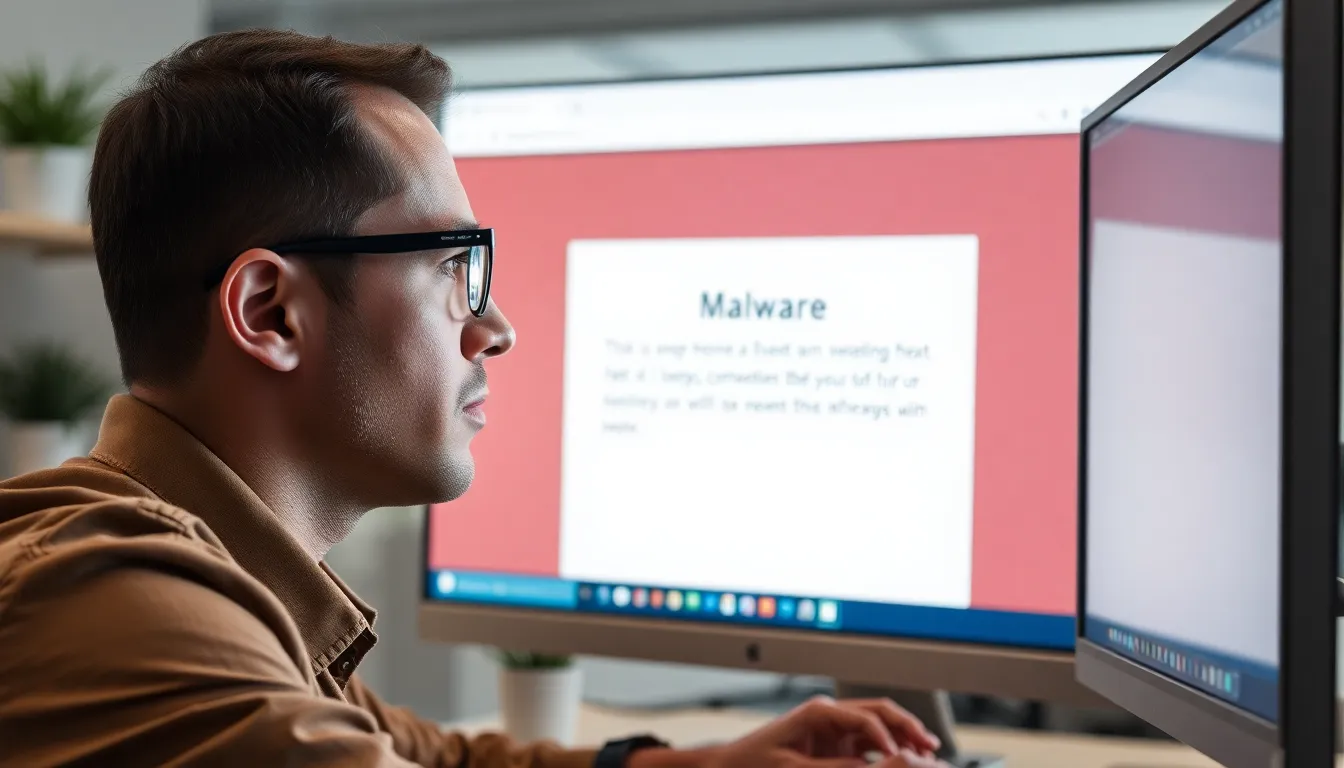In a world where cybercriminals lurk around every digital corner, computer security isn’t just important—it’s absolutely essential. Imagine leaving your front door wide open while you take a nap. Sounds ridiculous, right? Yet many people treat their online lives the same way, blissfully unaware of the dangers that await.
Protecting sensitive information is like wearing a seatbelt in a car; it might seem unnecessary until that unexpected bump in the road hits. From identity theft to malware attacks, the stakes are high. With a little humor and some savvy strategies, securing your computer can be as easy as pie—if pie were made of firewalls and encryption. Embracing computer security not only keeps your data safe but also gives you peace of mind in this chaotic digital age.
Table of Contents
ToggleImportance Of Computer Security
Computer security plays a vital role in protecting personal information and sensitive data. Cyber threats, including identity theft and malware, pose significant risks in a connected world. According to a report by Cybersecurity Ventures, cybercrime damage costs are projected to reach $10.5 trillion annually by 2025. Such staggering figures emphasize the need for robust security measures.
Risk assessment serves as a foundational step in enhancing computer security. Identifying vulnerabilities helps in implementing targeted defenses. Firewalls act as a barrier, blocking unauthorized access while allowing legitimate traffic. Antivirus software detects and neutralizes malicious software, safeguarding systems against potential compromises.
User awareness contributes significantly to the overall security environment. Training individuals on recognizing phishing attempts and suspicious activities enhances collective vigilance. Strong password practices protect accounts from unauthorized access. Organizations often enforce policies requiring complex passwords, reducing the likelihood of breaches.
Regular software updates fix known vulnerabilities, improving security posture. Keeping systems up to date ensures that they integrate the latest security patches, combating emerging threats. Backup solutions, including cloud storage, prevent data loss in case of attacks or hardware failures. Implementing multi-factor authentication adds another layer of security by requiring multiple verification methods.
Maintaining a secure computer environment leads to peace of mind in daily operations. Confidence grows when individuals and organizations know they are taking proactive steps against cyber threats. Each measure taken contributes to a stronger defense, demonstrating that vigilance is key in the realm of computer security.
Common Threats To Computer Security

Understanding common threats to computer security enhances awareness and helps individuals take appropriate precautions.
Malware
Malware includes various harmful software designed to damage or exploit devices. Viruses, worms, and spyware fall under this category. Data from the Cybersecurity & Infrastructure Security Agency indicates that malware infections lead to massive financial losses. Employing updated antivirus software mitigates the risks associated with these threats. Scanning systems regularly offers additional protection from potential malware infections.
Phishing
Phishing attacks aim to trick individuals into revealing sensitive information through deceptive emails or messages. Cybercriminals often impersonate legitimate organizations to gain trust. According to the Anti-Phishing Working Group, the number of reported phishing attacks reached an all-time high in 2021, with a staggering increase from previous years. Recognizing the signs of phishing can significantly reduce the likelihood of falling victim to these schemes. Utilizing verified communication channels and double-checking URLs provides an extra layer of security.
Ransomware
Ransomware encrypts data, rendering it inaccessible until a ransom is paid. This form of cyberattack has surged, with damages projected to exceed $20 billion annually by 2023. Businesses, hospitals, and educational institutions face particularly high risks, as attacks can disrupt operations and lead to substantial financial losses. Regularly backing up data ensures recovery without paying the ransom. Implementing robust security protocols and employee training also strengthens defenses against ransomware incidents.
Benefits Of Strong Computer Security
Strong computer security offers numerous advantages, crucial for navigating today’s digital environment.
Data Protection
Data protection remains a primary benefit of robust computer security. It safeguards personal information against unauthorized access, mitigating risks associated with data breaches. Cybercrime damage costs, projected to reach $10.5 trillion annually by 2025, highlight the need for serious defenses. Employing encryption techniques protects sensitive data files during transmission and storage. Regularly updated antivirus software detects and neutralizes potential threats before damage occurs. Implementing firewalls further prevents unauthorized users from accessing confidential information. Ultimately, a strong security posture helps maintain the integrity and confidentiality of vital data.
Enhanced Privacy
Enhanced privacy is another significant benefit of effective computer security. It empowers individuals to manage their personal information and online activities with confidence. Cyber threats commonly target personal data, making proactive measures essential. Strong security protocols reduce the likelihood of information exposure to malicious actors. Additionally, secure systems enable safe browsing and protect online transactions, fostering user trust. Multi-factor authentication adds an extra layer of protection, ensuring only authorized individuals access accounts. As cyber threats evolve, robust privacy measures remain critical for individuals and organizations, ensuring peace of mind in a connected world.
Best Practices For Computer Security
Ensuring robust computer security involves implementing key practices that protect sensitive data effectively.
Regular Updates
Regular updates play a crucial role in maintaining security. They address potential vulnerabilities, reducing the risk of unauthorized access. Any software, including operating systems and applications, requires frequent updates to patch security flaws. Cyber threats evolve continuously; hence, staying current helps in mitigating risks. Automated update settings can simplify this process. By keeping antivirus tools updated, individuals gain enhanced protection against the latest malware. Regularly installed updates help in safeguarding systems from exposure to threats and ensure optimal performance.
Strong Passwords
Strong passwords serve as the first line of defense against cyber intrusions. A password should be complex and unique, consisting of at least 12 characters, including a mix of upper and lowercase letters, numbers, and symbols. Avoiding easily guessable information, such as birthdays, strengthens password security significantly. Utilizing a password manager enables individuals to generate and store passwords securely. Regularly changing passwords further reduces risks associated with breaches. Two-factor authentication adds another layer, enhancing security measures. Prioritizing strong password practices minimizes the likelihood of unauthorized access, thereby protecting sensitive information effectively.
Computer security isn’t just a technical necessity; it’s a fundamental aspect of modern life. As cyber threats continue to evolve and become more sophisticated, staying vigilant is essential. Implementing strong security measures not only protects personal and sensitive information but also fosters a sense of trust in digital interactions.
By adopting best practices like regular software updates and using strong passwords, individuals can significantly reduce their risk of falling victim to cybercrime. Ultimately, a proactive approach to computer security empowers users to navigate the digital landscape with confidence, ensuring their data remains safe and secure.



